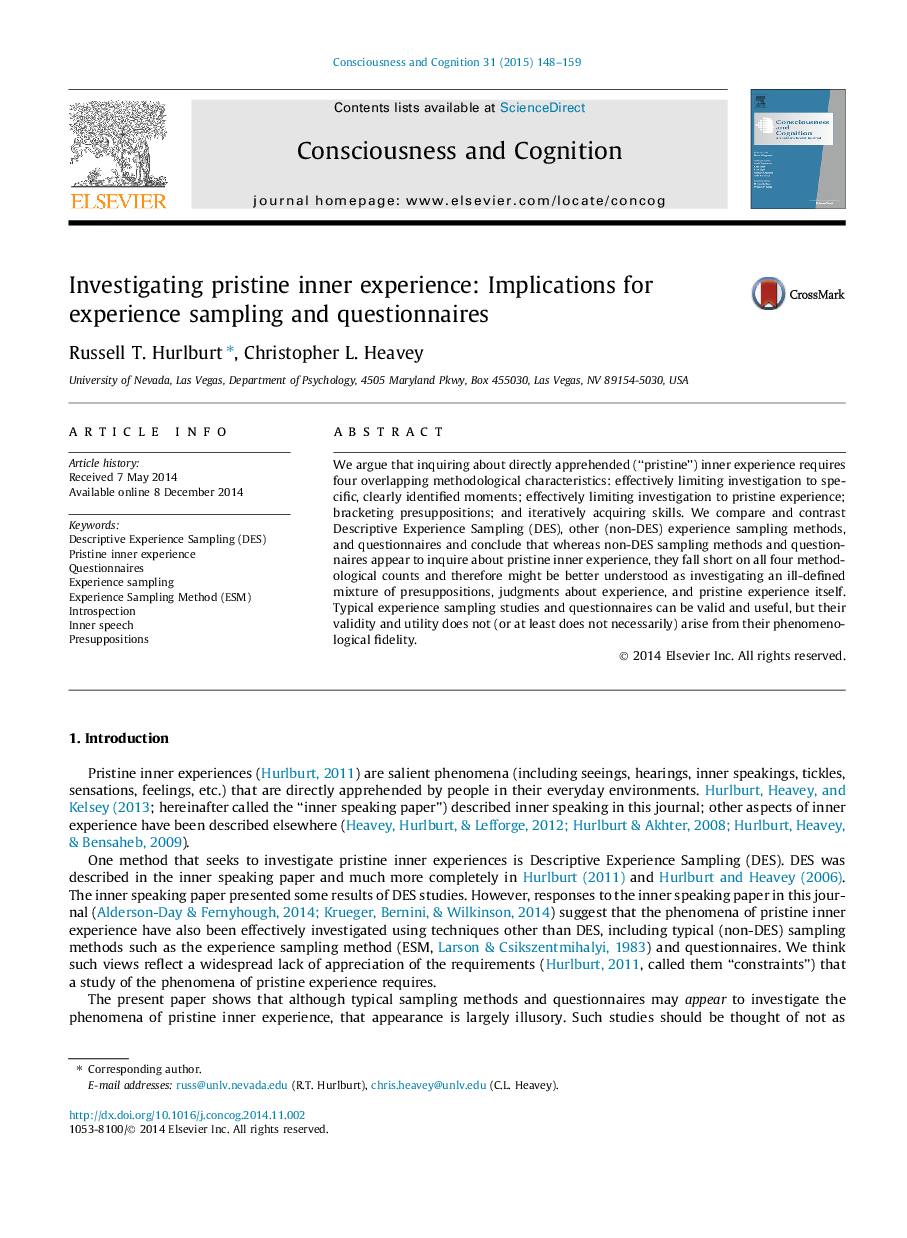| Article ID | Journal | Published Year | Pages | File Type |
|---|---|---|---|---|
| 7289678 | Consciousness and Cognition | 2015 | 12 Pages |
Abstract
We argue that inquiring about directly apprehended (“pristine”) inner experience requires four overlapping methodological characteristics: effectively limiting investigation to specific, clearly identified moments; effectively limiting investigation to pristine experience; bracketing presuppositions; and iteratively acquiring skills. We compare and contrast Descriptive Experience Sampling (DES), other (non-DES) experience sampling methods, and questionnaires and conclude that whereas non-DES sampling methods and questionnaires appear to inquire about pristine inner experience, they fall short on all four methodological counts and therefore might be better understood as investigating an ill-defined mixture of presuppositions, judgments about experience, and pristine experience itself. Typical experience sampling studies and questionnaires can be valid and useful, but their validity and utility does not (or at least does not necessarily) arise from their phenomenological fidelity.
Keywords
Related Topics
Life Sciences
Neuroscience
Cognitive Neuroscience
Authors
Russell T. Hurlburt, Christopher L. Heavey,
